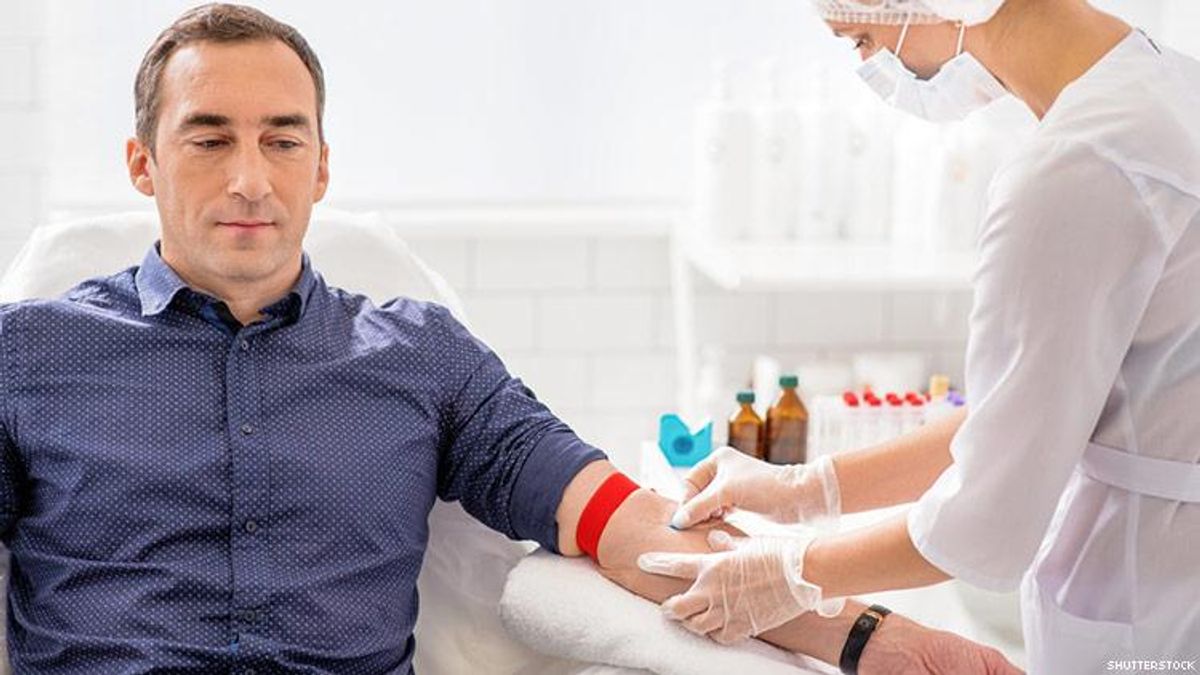There's encouraging news for gay and bi men who want to donate blood in Canada.
The Canadian Blood Services, a nonprofit that oversees blood products in the North American country, is considering shortening the required period of abstinence for men who have sex with men (MSM).
Under present policy, MSM must practice one year of abstinence before giving plasma. But according to Yahoo News Canada, CBS is considering changing this time frame to only three months in light of a new analysis of existing research.
CBS is "currently discussing the results of the analysis with stakeholders and partners," spokesperson Ross FitzGerald told Yahoo. These partners include LGBTQ and medical organizations. A final change must be approved by Health Canada, a government department that oversees the country's public health.
Previously, gay and bi men had been banned from donating blood after the AIDS crisis began disproportionately impacting members of this community in the 1980s. The ban was lifted in 2013 and replaced with an abstinence period of five years, which was then reduced to one year in 2016.
Modern antibody tests can detect HIV in 98 percent of cases after three months of exposure, according to the San Francisco AIDS Foundation. More sensitive tests, like RNA testing, can detect HIV after only 10 days.
Activists have condemned the year-long ban, which is also imposed by the FDA in the United States, as ineffective and discriminatory. "For the overwhelming majority of gay and bisexual men, of course, celibacy for a year is a de facto lifetime ban. Many in our community rightly question the need for a ban at all," wrote Kelsey Louie, CEO of the Gay Men's Health Crisis, in 2014. In its place, many call for more advanced testing procedures within a centralized monitoring system.
"People rely on life-saving blood every day," noted Canadian activist Christopher Karas. "I have to ask, how much longer do they have to wait? How much longer until we're seen as equal?"


















































































Here's our dream all-queer cast for 'The White Lotus' season 4